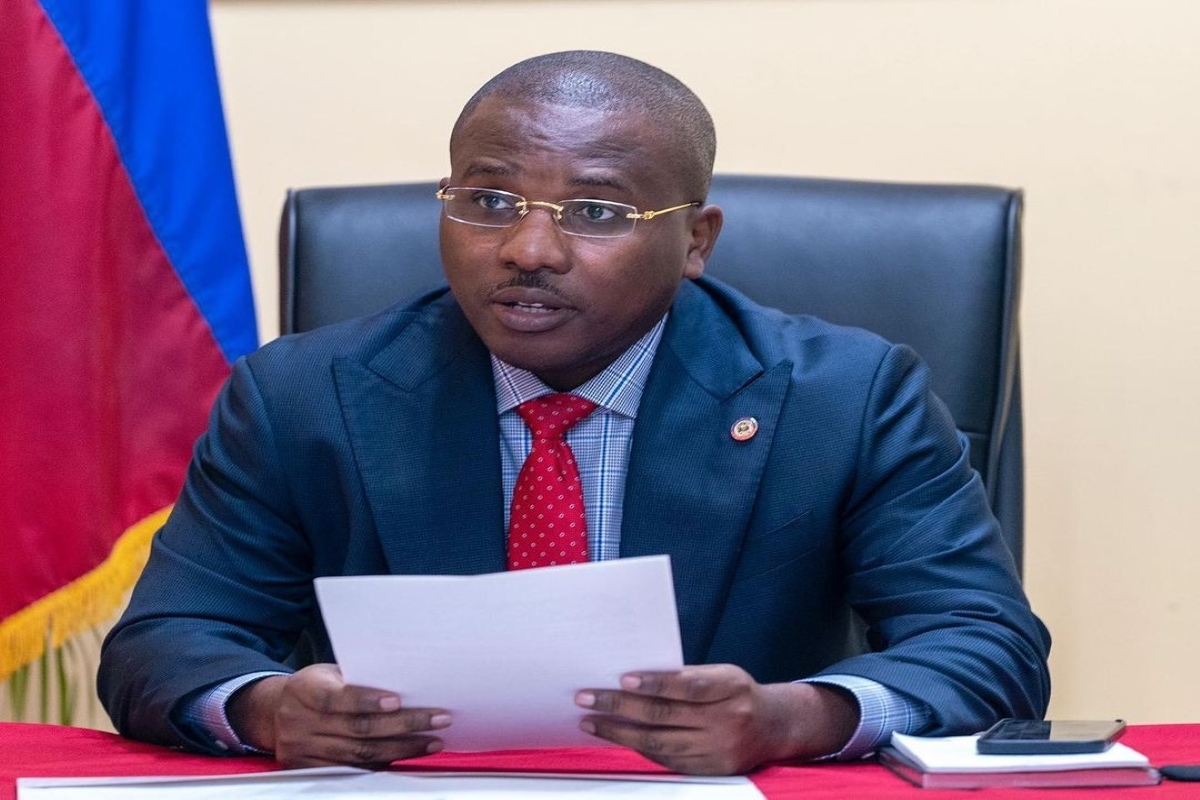In the befuddling assassination of Haiti’s president, 17 suspects have been detained so far as authorities say two apparently hold dual US-Haitian citizenship and Colombia’s government says at least six are former members of the army.
Léon Charles, chief of Haiti’s National Police, said Thursday night that 15 of the detainees were from Colombia.
Advertisement
The police chief said eight more suspects were being sought and three others had been killed by police. Charles had earlier said seven were killed.
“We are going to bring them to justice,” the police chief said, the 17 handcuffed suspects sitting on the floor during a news conference on developments following the brazen killing of President Jovenel Moïse at his home before dawn Wednesday.
Colombia’s government said it had been asked about six of the suspects in Haiti, including two of those killed, and had determined they were retired members of its army. It didn’t release their identities.
The head of the Colombian national police, Gen. Jorge Luis Vargas Valencia, said President Iván Duque had ordered the high command of Colombia’s army and police to cooperate in the investigation.
“A team was formed with the best investigators … they are going to send dates, flight times, financial information that is already being collected to be sent to Port-au-Prince,” Vargas said.
The U.S. State Department said it was aware of reports that Haitian Americans were in custody but could not confirm or comment.
The Haitian Americans were identified by Haitian officials as James Solages and Joseph Vincent. Solages, at age 35, is the youngest of the suspects and the oldest is 55, according to a document shared by Haiti’s minister of elections, Mathias Pierre. He would not provide further information on those in custody.
Solages described himself as a “certified diplomatic agent,” an advocate for children and budding politician on a website for a charity he started in 2019 in south Florida to assist people in the Haitian coastal town of Jacmel. On his bio page for the charity, Solages said he previously worked as a bodyguard at the Canadian Embassy in Haiti.
Witnesses said a crowd discovered two of the suspects on Thursday hiding in bushes in Port-au-Prince, and some people grabbed the men by their shirts and pants, pushed them and occasionally slapped them.
“They killed the president! Give them to us! We’re going to burn them,” people chanted outside.
The crowd later set fire to several abandoned cars riddled with bullet holes that they believed belonged to the suspects. The cars didn’t have license plates, and inside one was an empty box of bullets and some water.
Later, Charles urged people to stay calm and let his officers do their work. He cautioned that authorities needed evidence that was being destroyed, including the burned cars.
Officials have given out little information on the killing, other than to say the attack was carried out by “a highly trained and heavily armed group.”
A Haitian judge involved in the investigation said Moïse was shot a dozen times and his office and bedroom were ransacked, according to the Haitian newspaper Le Nouvelliste. It quoted Judge Carl Henry Destin as saying investigators found 5.56 and 7.62 mm cartridges between the gatehouse and inside the house.
Moïse’s daughter, Jomarlie Jovenel, hid in her brother’s bedroom during the attack, and a maid and another worker were tied up by the attackers, the judge said.











